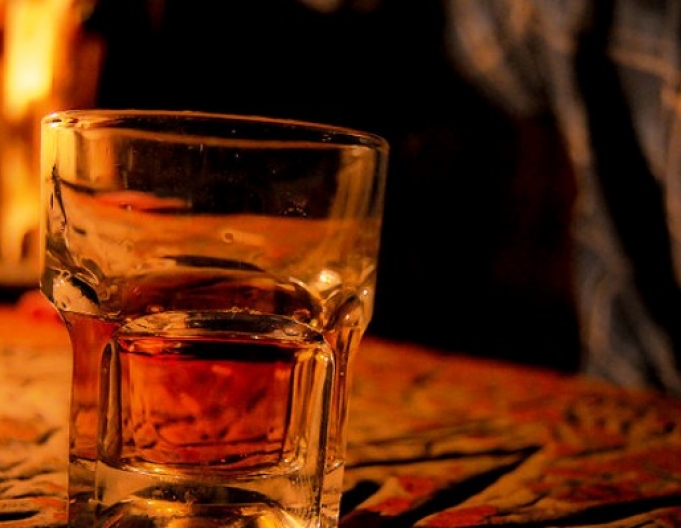PARIS —
They are not patients, they are followers. Some call it a “miracle.” Others credit the drug for offering them “freedom” or for “saving” them. For these recovering alcoholics, Baclofen, is nothing short of a wonder drug – a long elusive “cure” for their addiction.
Never mind that Baclofen was never meant to treat alcoholism. Instead, this derivative of gamma-aminobutyric acid (GABA) is a muscle relaxer, meant to treat spastic movement disorders like cerebral palsy or Lou Gehrig’s disease.
But a growing body of evidence suggests it also offers relief to alcoholics by inhibiting both withdrawal symptoms and cravings. That was exactly what French heart specialist Olivier Ameisen found when he experimented with Baclofen to treat his own alcoholism. Dr. Ameisen went on to write a book about his experience titled “Le Dernier Verre” (The Last Glass), which was published in 2008 and inspired numerous alcoholics to follow his example. Like him, they started taking big doses of the medication, which has been around since the 1970s and is marketed under the brand names Kemstro, Lioresal, and Gablofen.
“The symptom of the disease is the irrepressible longing for a drink,” says Dr. Ameisen. “If you put an end to the symptoms, you put an end to the disease.” The doctor first prescribed Baclofen to himself eight years ago. He claims he hasn’t had a drink since.
“I owe my life to Olivier Ameisen,” says Mia, a 51-year-old interpreter who says she was “cured” within a month. Even better news is that some patients say they can still drink, but moderately. The dream of any addicted person.
Doctors must take risk
The path of liberation is full of pitfalls. Doctors who agree to prescribe the drug to alcoholics are rare, since technically speaking, it is against the law to recommend Baclofen as a treatment for anything other than muscle spasms. One 54-year-old alcoholic, Sylvie, recalls she went to Spain to get her hands on some Baclofen. Sylvie began drinking heavily at 16. Others say they buy the drug on the Internet.
French health authorities warn that “the benefits of Baclofen for the treatment of alcohol addiction has not yet been proven” and strongly encourage alcoholics not to use the drug. Of particular concern are the dosages alcoholics are suspected of taking. Doctors recommend adults take no more than 100-120 milligrams of Baclofen per day. Alcoholics say they need on average 150 milligrams per day for the drug to effectively suppress their cravings. Amazed by the results of the medication, some alcoholics just stop following any regular dosage regime altogether. “I started with 10 milligrams per day. I reached a peak of 210 milligrams, did that for two days, and then went down to 90 milligrams,” says Mia.
People in favor of using Baclofen to treat alcoholism have formed communities on the Internet and are lobbying hard for health authorities to begin allowing doctors to prescribe it freely. They have already won a first battle: starting at the end of the year, a clinical test will be conducted in France to evaluate its effect on alcoholism. Under the supervision of Philippe Jaury, professor in general medicine at the Université Paris Descartes, the drug will be administered to 300 humans. The first results should be available in 2013.
“That’s too long,” says Dr. Ameisen. “About 120 [French] people die from alcoholism every day.”
Ameisen’s colleagues in the French medical community have mixed feelings about the drug. Some agree that it should be legalized, if nothing else so that doctors can at least monitor the use of a medication patients are finding ways to obtain anyway. But others are steadfast in refusing to prescribe it, in part out of fear that they might open themselves up to possible malpractice suits, but also because Baclofen’s use as an alcohol addiction treatment has simply not yet been studied enough. “We are in a delicate position,” says Dr. Stéphanie Geiger- Boicot, addictionologist in the Quatre-Ville hospital in the city of Saint-Cloud. “If someone files a complaint, we are not protected.”
In general, addictionologists tend to be suspicious of a pill that would so quickly eliminate any feeling of dependence. Especially since Baclofen, which patients take continuously, is not without side effects: drowsiness, dry mouth, cramps, sometimes depression. Dr. Michel Craplet, a psychiatrist and expert in alcohol addition, say the drug has a psychological downside as well. He describes alcoholics who self medicate with Baclofen “extremely lonely.”
“They lived for a while with what they thought was a miracle drug: alcohol,” he says. “Today they think that another miracle drug, Baclofen, will save them from their illness. One illusion replaces another.”
Is Baclofen a mere illusion? Or a super-placebo? Or the first truly effective treatment for a timeless disease? The verdict in two years.
